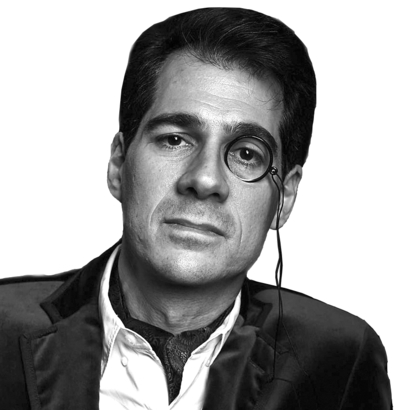One rule I was always sure of: the best way to evaluate people is by how they treat their restaurant server.
I was wrong. Pol Pot, a genocidist, could be sweetly appreciative of a simple vegetable soup. Idi Amin, a murderer of 500,000, would, when his chef made something he enjoyed, give him “an envelope full of extra money and thanked [him] for the food five times over.” Saddam Hussein, who was known to stick a glass bottle up the ass of a prisoner and then kick it into shards, bought his chefs a new car every year as a bonus, Oprah-style.
In How to Feed a Dictator, Polish journalist Witold Szablowski tracks down the former personal chefs of five dictators. He travels to a jungle town in Cambodia to meet an old woman who cooked for Pol Pot so well that he made her ambassador to China; to a hut without indoor plumbing in Uganda to talk to the chef who had sex with women in front of Idi Amin at his bidding; to a hotel restaurant in a seaside town in Albania to interview the chef who gave Enver Hoxha diabetic-friendly desserts to improve his moods; to a stylish Havana restaurant run by Fidel Castro’s former chef who didn’t eat much meat; and to Iraq to find a former chef who reports that Hussein really liked a good soup.
From Soup to Nuts
Szablowski intersperses their stories, which he transcribes in the first person, with his tale of tracking them down in order to show what life is like in places that were devastated by strongmen. He also peppers in biographies of each dictator and some roughly sketched recipes. I haven’t made the Thieves’ Fish Soup from Hussein’s hometown that his mother taught his chef, but as soon as I can score a gattan from my fishmonger, I’m going to buy some dried apricots, almonds, tomatoes, onions, garlic, and turmeric and give it a shot.
Maybe I loved the book because it hit my personal sweet spot—food and history. (I had to be dragged away from the digital tablet at the Ronald Reagan Library, where you can flip through White House state-dinner menus.) But I kept turning the pages of How to Feed a Dictator with the same gape-mouthed shock I got from reading The Orphan Master’s Son.
Each chapter made me realize how one-dimensional my concept of dictators was. I figured Pol Pot was a madman raving as he stood over the killing fields; I never did the math on what a Paris-educated true believer in agrarian Communism would be like. His chef would have laid down her life for the man called “Brother Pouk,” which means “mattress,” a nickname he got because he was soft-spoken and calmed people down. She describes him as a smiley, charismatic, handsome dude—more like the leader of a hippie cult obsessed with organic farming than a man who killed people who were elite enough to wear eyeglasses.
I also assumed dictators ate like characters on Succession, snorting caviar, mainlining Margaux, and tossing mounds of uneaten lobster in the garbage because the crustaceans had briefly sat in the same room as an unpleasant odor. Probably because that’s what I would do if I were a dictator.
Saddam Hussein bought his chefs a new car every year as a bonus, Oprah-style.
But food is not a priority for these autocrats. Fidel Castro could have picked any of a number of Havana hotel chefs who cooked for Mafia dons as his private cook; instead he went with a young soldier who cooked soup for El Jefe’s troops over a campfire in the jungle because no other revolutionary was bothering to think about dinner. Pol Pot asked a young revolutionary woman who didn’t know how to cook to make him his meals, saying, “Surely, you know how to make sweet-and-sour soup.”
Despite eating simply, these guys were definitely major dicks. In both small and murderous ways. Hussein, the prankster, cooked his staff koftas so loaded with Tabasco they thought they’d been poisoned. Sure, Amin’s chef insists he knew the provenance of all the meat in the kitchen and never cooked human flesh, but still, it’s not great having a job where the first question everyone asks you is “Did you ever cook human flesh?” Almost as horrifying, Amin liked his food “salted to excess.”
His Excellency, President for Life, Field Marshal, Lord of All the Beasts of the Earth and Fishes of the Seas, Last King of Scotland and Conqueror of the British Empire, V.C., D.S.O., M.C. Idi Amin demanded that his entire kitchen staff get circumcised because he had converted to Islam. I personally wouldn’t want a crew of angry men bleeding into their aprons cooking for me, but maybe that’s why I’ve never single-handedly run a country.
The main effect after finishing is that these horrible men were humans, often inclined toward gentleness toward their staff, often dedicated to a vision for their people, often more interested in the food of their hometowns than in caviar. Which makes tyranny all the scarier. And all the more likely.
Joel Stein is the author of In Defense of Elitism


